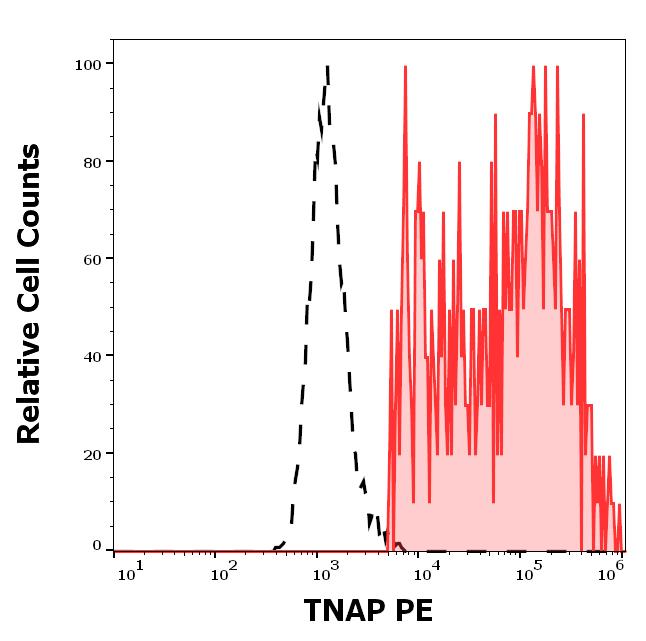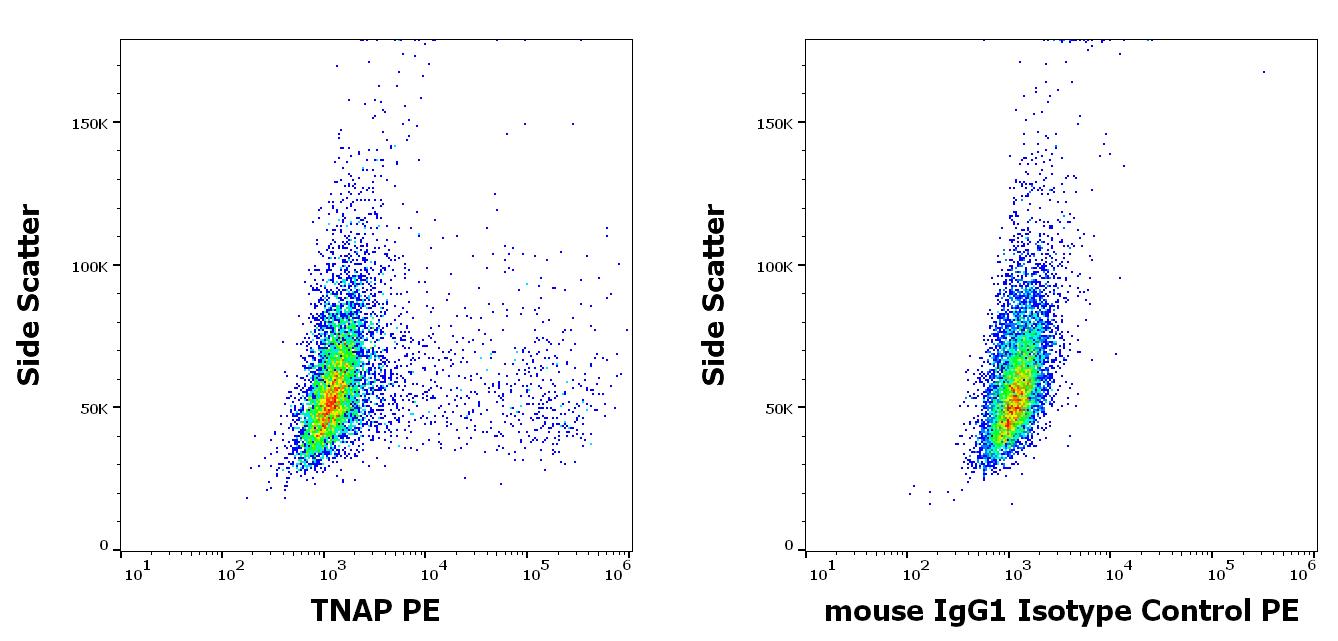Anti-TNAP PE (Clone : W8B2B10)

Figure 1: Separation of TNAP positive HeLa cells (red-filled) from TNAP negative HeLa cells (black-dashed) in flow cytometry analysis (surface staining) of HeLa cellular suspension stained using anti-TNAP PE antibody
Roll over image to zoom in
Shipping Info:
For estimated delivery dates, please contact us at [email protected]
| Amount : | 0.1 mg |
| Isotype : | Mouse IgG1 |
| Purification : | The purified antibody is conjugated with R-phycoerythrin (PE) under optimum conditions. The conjugate is purified by size-exclusion chromatography. |
| Content : | 0.1 mg/ml Formulation : Stabilizing phosphate buffered saline (PBS) solution containing 15 mM sodium azide |
| Storage condition : | Store in the dark at 2-8°C. Do not freeze. Avoid prolonged exposure to light. |
| Gene : | ALPL |
| Gene ID : | 249 |
| Alternative Name : | Tissue Non-specific Alkaline Phosphatase, MSCA-1, liver/bone/kidney alkaline phosphatase,alkaline phosphatase, biomineralization associated |
| Immunogen Information : | WERI-RB-1 retinoblastoma cell line |
Tissue non-specific alkaline phosphatase (TNAP), also known as liver/bone/kidney alkaline phosphatase, or MSCA-1 (mesenchymal stem cell antigen 1) is a selective marker for the prospective isolation of bone marrow-derived mesenchymal stem cells and mesenchymal stem-like cells. It is expressed at high levels in liver, bone, kidney, or endometrium, as well as on embryonic stem cells (ESCs). TNAP also plays a role in bone mineralization. Mutations in TNAP gene are associated with hypercalcemia and skeletal defects (hypophosphatasia).
Specificity : The mouse monoclonal antibody W8B2B10 recognizes TNAP (tissue non-specific alkaline phosphatase), an ectoenzyme expressed mainly on embryonic stem cells, liver, bone, and kidney cells. This antibody is suitable for characterization of bone marrow-derived MSCs, iPSCs, and ESCs.
|
There are currently no product reviews
|
















.png)











